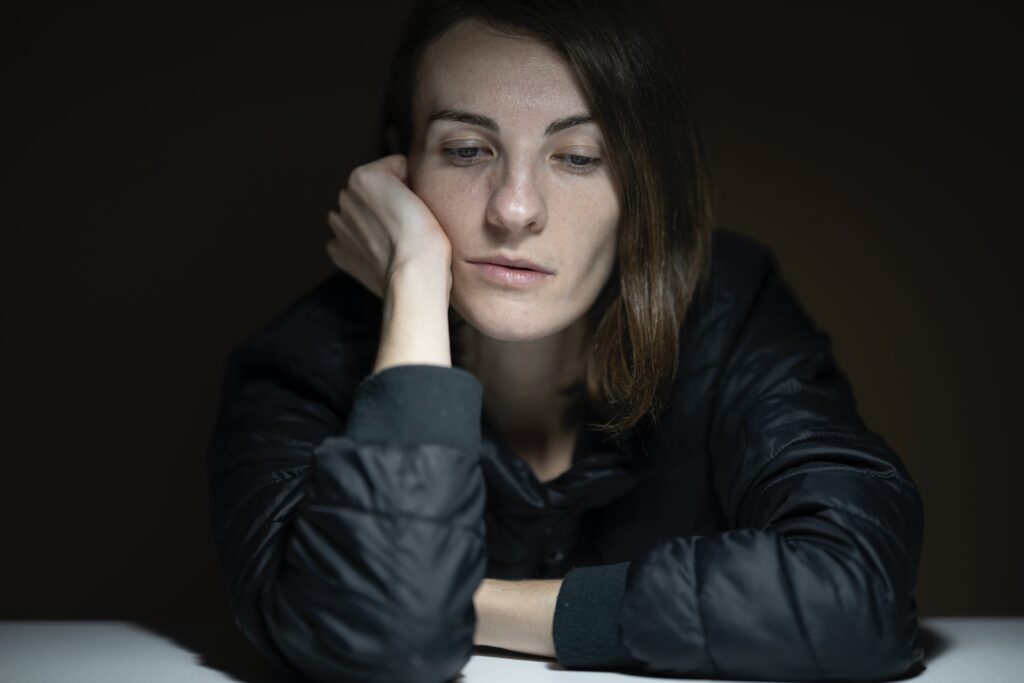
Understanding Depression
It’s important to remember that depression is a medical illness and most people get better. Moreover, it is a treatable condition and there are steps you can take under the guidance of healthcare professionals to feel well again.
Depression is not a weakness, a personality flaw or a sign of failure.
“… depression is an illness that can get better.”
We all have days when we feel miserable or down. Usually we cope and these feelings pass. However, if they endure for weeks (or months) and they interfere with your day-to-day life, then you may have clinical depression, often simply called depression.
Some 4 out of every 10 people with depression experience severe disability. Research has shown that depression is one of the country’s most debilitating illnesses with more than one million Australians experiencing an episode every year.
Recognising the signs
There are many symptoms of depression. If you have had many of these nearly every day, over the past two weeks or more, you may have developed clinical depression.
Symptoms of depression
- Feeling sad or down
- A loss of interest and pleasure in normal activities
- A significant change in appetite or weight (either up or down)
- Inability to get to sleep or waking up early
- Feeling tired all the time
- Having trouble concentrating or making decisions
- Feeling restless, agitated, worthless or guilty
- Physical symptoms, such as headache, palpitations, chest pains or general aches
- Feeling that life isn’t worth living
Other effects can include irritability, loss of self-esteem, reduced interest in relationships and in sexual activity. This is not a complete list of symptoms of depression. Some people may experience other symptoms not included in this list. Please consult your doctor for further information regarding your depression.
Depression is a very common illness and tends to occur in episodes – despite its onset, you can still expect it to end. Mild depression may last just a few weeks and improve without treatment. More severe forms however can persist for months, particularly if left untreated. Depression of any severity that is not properly treated is also more likely to recur.
Anyone can get depression – 1 in 4 women and 1 in 6 men will experience depression over their lifetimes. It affects young and old, men and women, both single people and those in relationships. It can affect someone no matter what their level of education and regardless of whether they are employed or not. Having depression is not a sign of weakness or other character deficiency.
Depression and the body
Brain chemistry is significantly altered in depression. In most cases, the functioning of substances, known as neurotransmitters, is disrupted. Neurotransmitters carry signals to different parts of the brain and body, influencing various physical and mental abilities.
Chemical changes linked to depression
- Alterations in the activity of neurotransmitters such as serotonin which affects mood
- Female sex hormone changes in puberty, after pregnancy and during menopause
These changes can cause many of the physical and mental effects recognised as signs of depression.
Why it happens
There is no simple explanation as to what causes depression. In general, it arises when recent or ongoing stress is combined with a personal vulnerability to the disease.
Contributing factors of depression
- Family history – you are at increased risk if a close relative has been affected
- High-risk personality – including traits such as anxiety, pessimism, perfectionism and low self-esteem
- Gender – women are twice as likely as men to develop depression
- Life stages – including after pregnancy and at the menopause
- Age, previous trauma and adverse childhood experiences
- Alcohol and drug use
- Sudden or ongoing stress – such as bereavement or longstanding family conflict
- Medical conditions and medicines.
The link between certain medical conditions and depression makes it important for anyone feeling depressed to have a proper medical check-up.
When you are depressed, it can be difficult to imagine ever feeling well again. However, it is important to know that no matter how you may be feeling now, you will feel better. Recovery from depression is the rule not the exception.
While people can recover from depression without any treatment, effective therapy can speed up the process – reducing the duration of a typical episode (up to 9 months) to around 2 months. For this reason, you are encouraged to see your GP, psychologist or other mental healthcare professional if you have not already done so. By maintaining your commitment to treatment, you can continue to make progress.
Proven strategies for managing depression
- Talking (psychological) treatments
- Antidepressant medications
- Lifestyle changes to reduce symptoms
Talk with your GP about what treatments are available to you and which ones you think would suit you best. The aim of treatment is to feel completely back to how you felt before you were depressed, not just to feel a bit better! This is called achieving remission. If you don’t think you are completely better, it is very important to go back to your GP.
Recovering from depression
- The process of recovery is different for each person
- Treatment can shorten the time taken to recover
- Staying on treatment reduces the chance of a relapse
The aim of treatment is to feel completely back to how you felt before you were depressed
Helping someone with depression
If you think a friend or loved one may be depressed, you can help in a number of ways.
- Encourage them to talk about their feelings
- Try to be a good listener; empathy and support are indispensable
- Convey information about depression, emphasise it is treatable
- Encourage healthy lifestyle habits, with regular exercise and balanced diet
- Assist with social activity; be inclusive of them and stay in touch
- Encourage them to seek professional help; follow up after their appointments
- If they are receiving treatment, be positive and encourage them to continue
- Be wary about behavioural changes and possible warning signs of suicidal intent
As a carer you may feel impatient with the person’s behaviour, by their constant lack of motivation, their irritability and the absence of a positive response. It’s worth remembering that this is part of the illness and does not reflect their attitude to you or to your relationship with them. Try to balance being supportive without expecting too much from them.
Caring for the carer
Caring for someone with depression can be very stressful as you worry about their welfare and take on more responsibilities.During this time though you should not forget to look after yourself.
- Maintain your health; eat well, exercise and get adequate sleep
- Make time for leisure activities and ‘me’ time
- Share your concerns with family members or friends
- Ask for help if necessary and don’t struggle on alone
- Make use of mental health support groups for information and to reduce social isolation
Resources and useful contacts
beyondblue
www.beyondblue.org.au
Comprehensive information for people with depression and for carers
Black Dog Institute
www.blackdoginstitute.org.au
Latest research and detailed information about depression and bipolar disorder
BlueBoard
www.blueboard.anu.edu.au
Online moderated peer support group for consumers and carers over 18 years (depression and anxiety disorders)
BluePages
www.bluepages.anu.edu.au
Depression information, links and latest scientific evidence for treatments
Multicultural Mental Health Australia
www.mmha.org.au
Mental health information for people from culturally diverse backgrounds
Reach Out
www.reachout.com
For young people covering relationship and health issues; specific attention to depression
SANE Australia
www.sane.org
Education and information on mental illness
Education and self-guided treatment
Clinical Research Unit for Anxiety and Depression (St. Vincent’s Hospital, Sydney)
www.crufad.org
e-couch
www.ecouch.anu.edu.au
Information and internet-based self-help tools for depression, general anxiety and social anxiety
MoodGym
www.moodgym.anu.edu.au
Online CBT for the prevention and treatment of depression and anxiety
24/7 Telephone help lines
Lifeline 13 11 14
Kids Helpline 1800 551 800
Children and young people (5–25 years)
Suicide Call Back Service 1300 659 467
beyondblue Infoline 1300 224 636
SANE Australia Helpline 1800 187 263
Young Carers Australia
Carers’ resources www.carersaustralia.com.au
Children and young people (5–25 years) www.youngcarers.net.au


